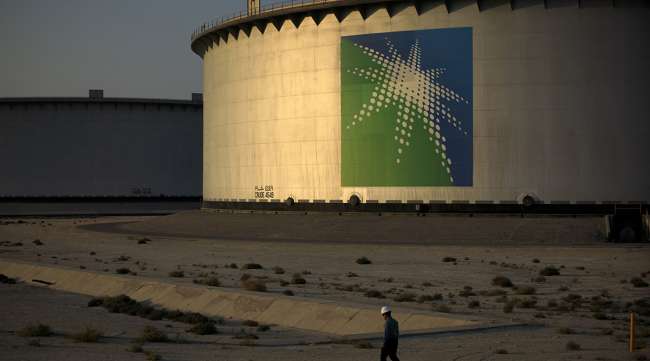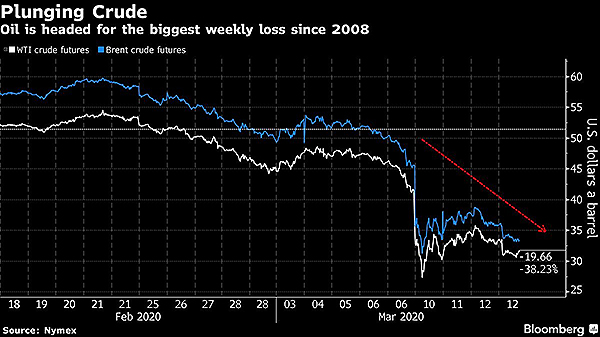Bloomberg News
Oil Falls Further After Travel Ban Deals Blow to Demand

[Stay on top of transportation news: Get TTNews in your inbox.]
Oil headed for the biggest weekly decline since 2008 after President Donald Trump said the U.S. would restrict travel from Europe for the next 30 days in an attempt to contain the coronavirus, pummeling fuel demand.
Futures in New York tumbled as much as 9% and are poised for a 24% drop this week. At the same time, Brent crude’s one-year structure collapsed into a super-contango for the first time in years, suggesting a large oversupply as responses by the U.S. and European policymakers have failed to stem the rout. The European central bank left rates unchanged, though it temporarily increased its quantitative easing program and took steps to boost liquidity.
U.S. equities plunged more than 8%, triggering a 15-minute New York Stock Exchange-mandated halt in trading for the second time this week.
“We’re getting the perfect storm with a travel ban,” said Michael Lynch, president of Strategic Energy & Economic Research Inc. “This collapse is inciting the fear this will be a full-blown recession.”

Crude has shaved about a quarter of its value this week alone, and gasoline futures tumbled to the lowest since 2008 on March 12. The protracted rout also has pushed the oil market to unprecedented levels of volatility as the coronavirus pandemic hits demand and a battle for market share by the world’s largest oil producing nations escalates further.
Saudi Arabia is unleashing a wave of crude toward Europe, traditionally the backyard for Russian sales, pledging to supply refineries with as much as three times their usual intake from the kingdom. There’s a prospect of a prolonged battle, as analysts expect Russia’s low production costs, flexible tax system and free-floating ruble will allow its producers to respond.
In the latest sign of the deep schism between the Organization of Petroleum Exporting Countries and its allies, top producers signaled no appetite for talks to bridge their differences by canceling a planned meeting of technical experts this month. The Kremlin earlier said it has no plans for oil talks with Saudi Arabia.
James Thornhill and Elizabeth Low contributed to this report.
Want more news? Listen to today's daily briefing:




